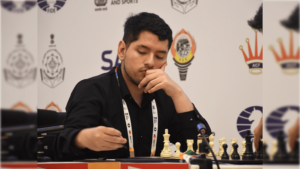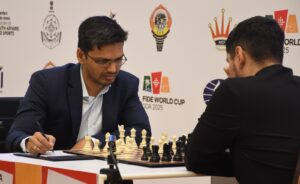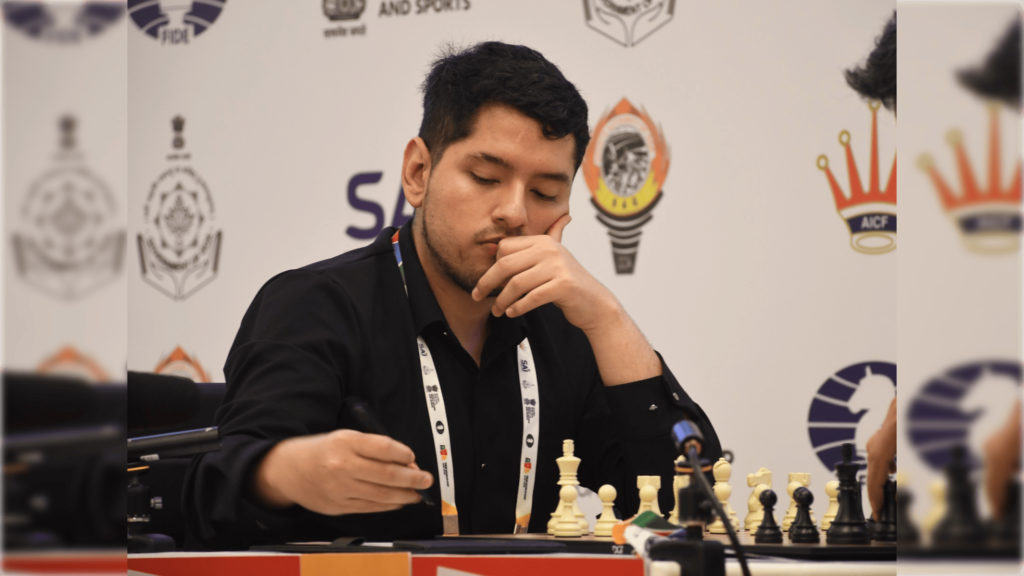
Atreyo Mukhopadhyay in Goa
It was close to 7 pm. Pentala Harikrishna had his left arm clasping the forehead. There were creases on that. Chess players often do that, a lot of time with both hands, which makes for some intense photographs. The difference between those postures and this was it was a sign of resignation. He knew he had lost all ways of forcing his way through in a must-win situation. It signalled his exit from the FIDE World Cup.
Playing against José Martínez Alcántara of Mexico in the tie-breakers of the fifth round, the Indian veteran drew the first two rapid games, lost the next one and, when he had to win to stay alive, came up short. His position was never tenable, according to the experts doing live commentary from the Fan Zone, and it was a predictable end to a commendable campaign. Harikrishna’s departure means Arjun Erigaisi is the lone Indian in the quarterfinals beginning on Monday.
With an ELO rating of 2644, José Martínez is ranked 78th in the world. Harikrishna is 36th at 2690. He has crossed the elite 2700 mark a number of times. A former world junior champion and a member of last year’s Chess Olympiad gold-winning Indian team, he is certainly a more illustrious player. But he is 39 and his opponent 26. The player of Peruvian origin has been one of the happening figures of this World Cup. He is in form and on song. José Martínez gave Harikrishna no chance.
Those doing live commentary were of the opinion that the player from Andhra Pradesh was okay to begin with, in the first rapid game in the tie-breakers after drawing both classical games. However, they were quick to note that his position kept getting worse as the game progressed. At one stage, they were saying that the Indian was “in serious trouble” and that the situation “was scary”. He summoned all his experience to survive that game and secure a draw.

The second rapid game was no different. He had white in this one and at the halfway stage, the commentators said black had “no weakness”. Harikrishna’s pawns were weak and exchanging queens was an imprudent call. He was again forced into a fight to save the game, which he did. That was creditable. At the same time, it was impossible to overlook the writing on the wall. Harikrishna was generally playing catch-up, never reaching a position he could call the shots from.
The situation got worse for him in the first game of the second set of rapid shootouts. He had white and well before this contest got over, the commentators were of the opinion that he was fighting a lost cause. He delayed the end for as long as he could but it was inevitable. “There is no chance,” the experts were unanimous. He still had an opportunity to take the issue further in the next game, but never reached a position of strength.
A great ambassador of Indian chess, Harikrishna will perhaps lose some rating points after this outing. That has to happen when one loses or draws against opponents rated lower than them. That said, this is not all about material gains or losses. Beyond that, there is a question of setting examples. The first Indian player of some global stature after Viswanathan Anand, Harikrishna did his cause no harm. Defeated he was, not disgraced.
Follow Revsportz for latest sports news





